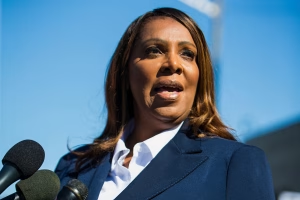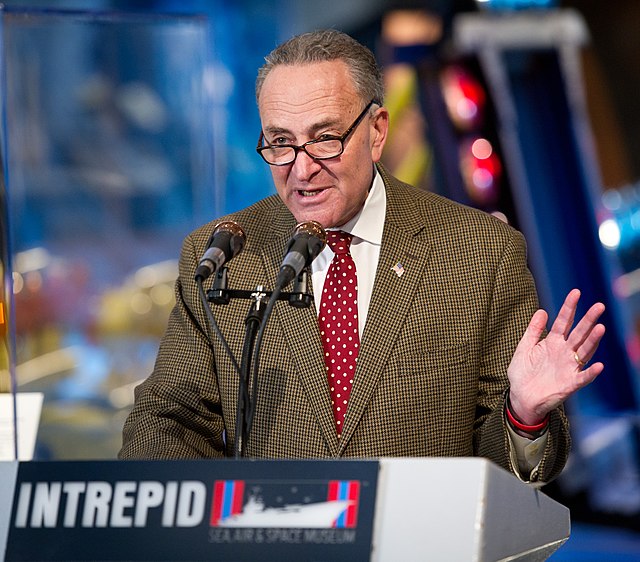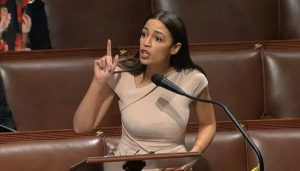Democrats Break Ranks With Schumer, Hand Trump Another Win
In a rare bipartisan moment, over a dozen Democratic senators joined Republicans on Monday to confirm President Donald Trump’s nominee for ambassador to China. David Perdue, a former Republican senator from Georgia, won Senate approval in a 64-27 vote. The post carries high stakes, as it involves trade and national security relations with the world’s second-largest economy.
David Perdue Confirmed
Perdue, who unsuccessfully challenged incumbent Governor Brian Kemp in a 2022 Republican primary with Trump’s backing, now moves into the diplomatic arena. His confirmation underscores both the enduring influence of Trump in Washington and the occasional willingness of Democrats to vote across party lines on foreign policy issues.
Democratic Party Faces Challenges With Young Voters
Meanwhile, the Democratic Party continues to struggle with support among young voters. According to a Harvard Kennedy School Institute of Politics poll, approval among Gen Z and young Millennials has dropped to 23 percent, down from 42 percent in 2017. Republicans fared slightly better at 29 percent, reflecting a minor but notable shift among a demographic that historically leans left.
Brett Cooper, host of The Brett Cooper Show, attributes the decline to a generational disconnect. “Democrats are completely out of touch with their voter base,” she said during a segment on Fox & Friends. Cooper pointed to aging members like Senator Dick Durbin, who recently announced his retirement, as symbols of a party that is increasingly out of step with young voters’ priorities.
Generational Tensions Within the Party
Cooper argues that Democrats are caught between competing factions: a radical left wing and a centrist group. Young voters reportedly feel alienated from both. “If they don’t like Donald Trump, then they’re angry that their representatives are not pushing back enough. If they are more common sense in the center, they’re angry with how radical they’ve gotten,” Cooper said.
According to her, emotional appeals have historically been the Democrats’ most effective tool to engage young voters, leveraging social media and highly charged messaging. However, she suggests these tactics may be losing traction as younger voters demand tangible policy outcomes rather than performative statements.
Ocasio-Cortez Rising in Popularity
The same polls suggest that New York Representative Alexandria Ocasio-Cortez (D) may be a rising star capable of bridging the party’s generational gap. A Data for Progress survey shows her leading Senate Majority Leader Chuck Schumer by 19 points in a hypothetical 2028 Democratic primary matchup among likely New York Democratic voters.
Between March 26 and 31, 767 likely Democratic primary voters were asked whom they would support in a contest between Schumer and Ocasio-Cortez. Fifty-five percent backed Ocasio-Cortez, while only 36 percent supported Schumer.
Disapproval Among Democratic Figures
The survey results reveal a broader trend: Schumer carries the highest disapproval rating among tested Democratic figures, while Ocasio-Cortez ranks among the most popular, trailing only Bernie Sanders (I-VT), Kamala Harris, and Elizabeth Warren (D-MA). Cooper believes this signals that the party may need to shift toward younger, more relatable leadership if it hopes to retain the engagement of younger voters.
“This is obviously an emotional issue, and they know that in order to reach Gen Z… historically, it has been through emotion, which is why you’re seeing these selfie videos and rallying cries,” Cooper said. She added that the party must listen to its constituents rather than relying on broad messaging strategies alone.
Implications for 2028
As speculation grows about the 2028 election cycle, the contrast between Schumer and Ocasio-Cortez highlights a tension within the Democratic Party: the struggle to reconcile an established leadership with emerging figures who resonate with younger voters. Ocasio-Cortez’s popularity suggests she could play a pivotal role in shaping the party’s trajectory and messaging strategy moving forward.
Meanwhile, Trump’s confirmation of Perdue demonstrates that the former president continues to exert significant influence over political appointments, and that Democrats may occasionally cooperate with Republicans on high-profile foreign policy issues.
The recent developments suggest that the Democratic Party faces both internal and external challenges. On one hand, generational dissatisfaction and changing voter priorities may push the party to reconsider its leadership. On the other, bipartisan decisions on key appointments underscore the strategic calculations lawmakers must make to navigate the complex political landscape.
Whether Democrats can reconcile these pressures while maintaining unity and appealing to younger voters will be a defining question heading into the next election cycles.

James Jenkins is a celebrated Pulitzer Prize-winning author whose work has reshaped the way readers think about social justice and human rights in America. Raised in Atlanta, Georgia, James grew up in a community that instilled in him both resilience and a strong sense of responsibility toward others. After studying political science and creative writing at Howard University, he worked as a journalist covering civil rights issues before dedicating himself fully to fiction. His novels are known for their sharp, empathetic portraits of marginalized communities and for weaving personal stories with broader political realities. Jenkins’s breakout novel, Shadows of Freedom, won national acclaim for its unflinching look at systemic inequality, while his more recent works explore themes of identity, resilience, and the fight for dignity in the face of oppression. Beyond his novels, James is an active public speaker, lecturing at universities and participating in nonprofit initiatives that support literacy and community empowerment. He believes that storytelling is a way to preserve history and inspire change. When not writing, James enjoys jazz music, mentoring young writers, and traveling with his family to explore cultures and stories around the world.









